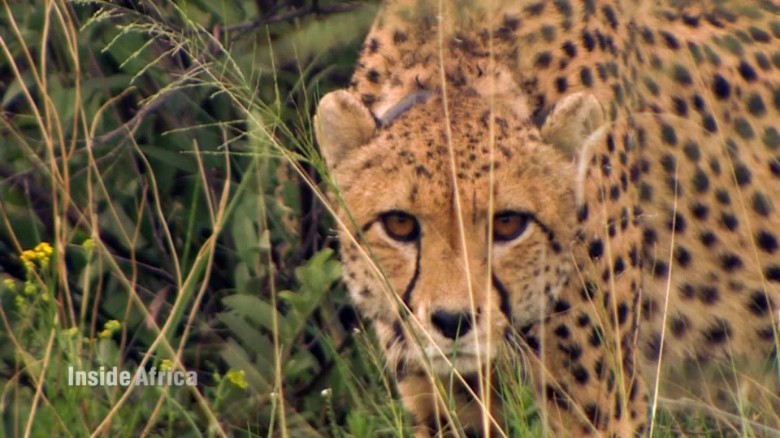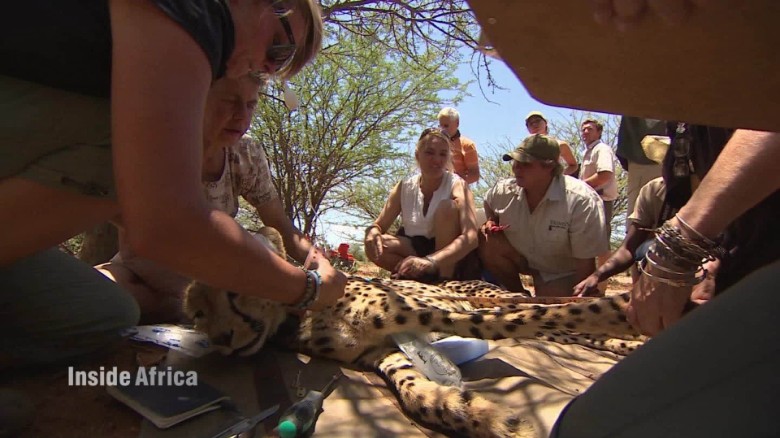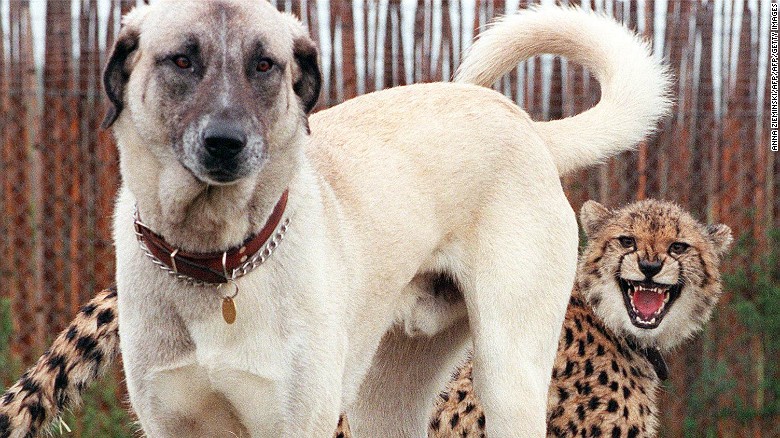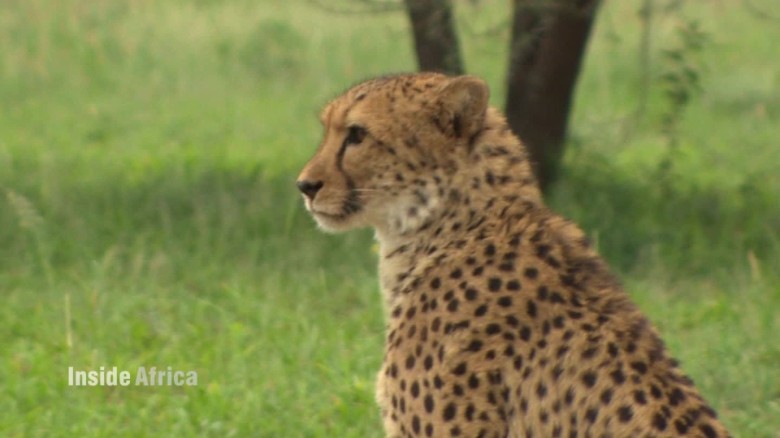
(CNN)They maybe man's best friend, but dogs in Namibia have been making a new acquaintance: the cheetah.
Anatolian
Shepherds and Kangals, large dog breeds that can weigh up to 150 lbs,
are being employed by Namibian farmers as a deterrence, preventing the
big cats from causing big problems.
Historically
one of the largest threats to the cheetah population has come from
ranchers who trapped and killed the animals to protect their livestock.
Cheetahs
require a vast amounts of land to roam, and they often stray outside
the boundaries of protected areas into nearby farmland. For generations,
Namibian farmers felt they had no other option.
"We
had to," farmer Andries Pretorius says, "there was no other way. We
shot them on a fairly big scale... It was the only way, because you have
to make a living... we lost a lot of cattle and sheep."
It
was a solution that contributed to the decline of cheetah populations.
Estimated to number more than 100,000 in 1900, once cheetahs could be
found across Africa, the Middle East, all the way to India. Now there
are thought to be as few as 10,000 of the big cats left globally.
The claws are out
In an attempt to change farmers' thinking, Namibia's Cheetah Conservation Fund (CCF) has persuaded many ranch owners to take a new approach, employing guard dogs rather than guns.
"Predators
are not wanton livestock catching animals," says CCF founder Laurie
Marker. "They don't want to come and eat our livestock. What we as
humans do is put our livestock in inappropriate locations through lack
of knowledge." The CCF has started using man's best friend as a buffer
between man and cheetah.
The CCF set up the Livestock Guarding Dog Program,
training dogs from their infancy to act as guardians of livestock
whilst preventing the loss of cheetah lives. Marker says the program has
been fascinating as the Anatolian Shepherd and Kangal are so smart.
"They
have been protecting livestock for over 5,000 years against wolves --
and probably cheetahs back at (one) point in time," she explains. "They
are a big dog and basically act as a guardian. They bark loudly and go
out with the herds... They say 'We are here, this is my flock' and the
predators stay away."
The program has
placed more than 400 canines in ranches across Namibia, primarily in the
central region that holds the most cheetahs.
"The
impact has been good," says Gebhart Nikanor, Education Office at the
program. "We think the farmers are happy with the work the dogs are
doing."
Marker says that livestock loses have reduced by 80-100% on farms with guard dogs.
It's
mutually beneficial relationship. Marker and her team are able to
conserve Namibia's cheetah population, and for farmers like Pretorius
"it saves us a lot of trouble and money."



No comments:
Post a Comment